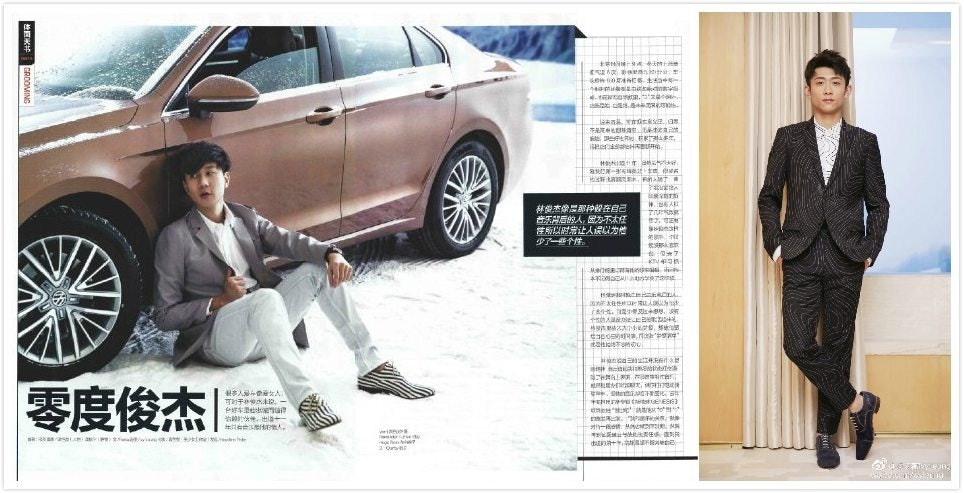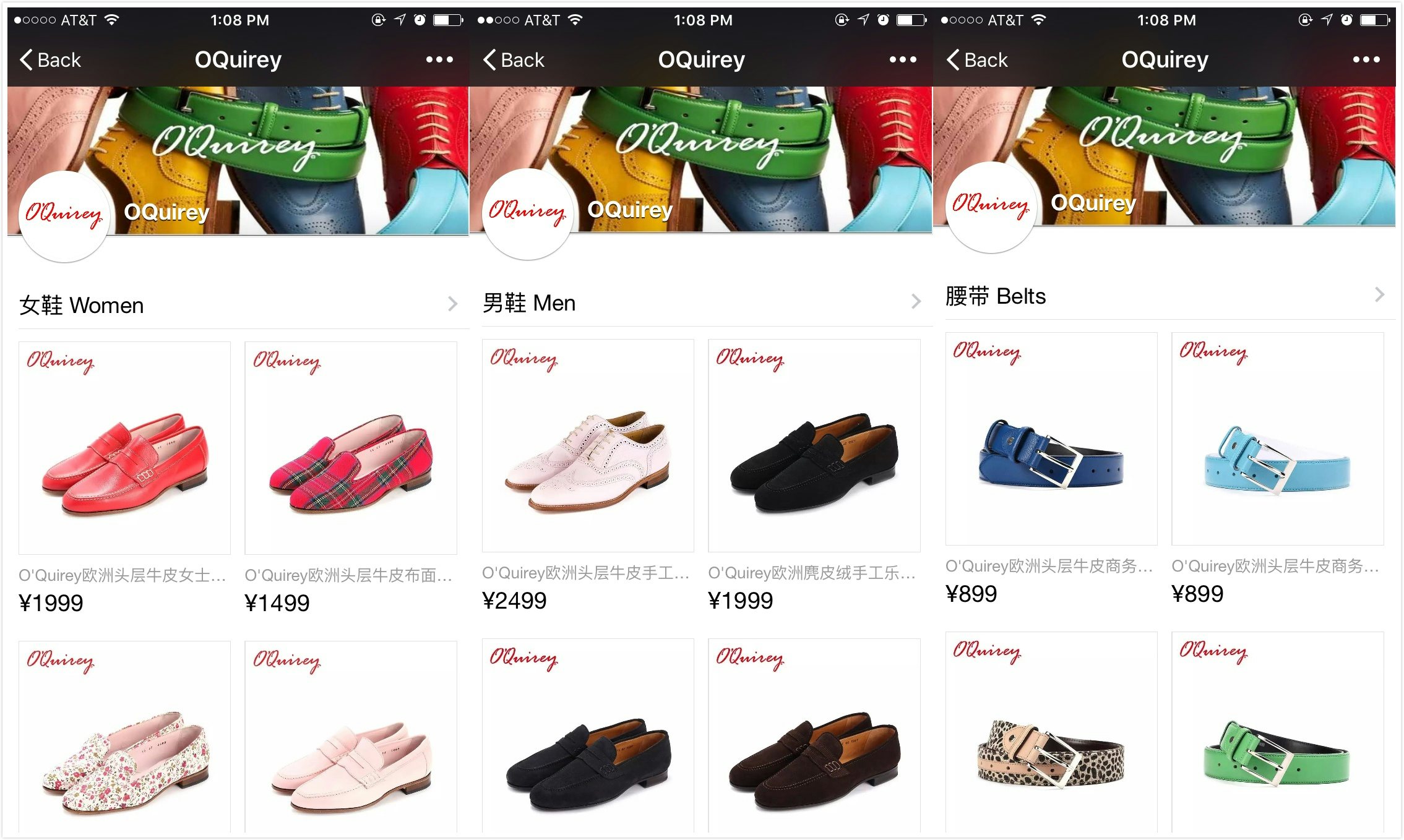WeChat's m-commerce capabilities have not only become popular for big-name luxury brands, but they're increasingly sought after by niche and small-scale labels. One of the latest shops to jump on board is Dutch shoe brand O’Quirey, which launched its WeChat store last month in a decisive step to improve its customer service to existing clients and attract new buyers.
Unlike more mainstream luxury brands, niche brands usually have a limited number of brick-and-mortar stores in China and attract a tailored group of like-minded customers. A WeChat store became a solution for expanding that targeted audience in the digital sphere for O'Quirey, said China manager of the brand, Koen Naber. In less than one month since its store launch on WeChat, O’Quirey has seen a 30 percent growth in followers. “What is most interesting is that new followers are mostly introduced by our existing fans,” Naber said.
Designed by Dutch shoemaker Jan Pelman, O’Quirey's leather shoes are all handmade in Portugal and manufactured according to the Goodyear production method, which ensures the quality of every pair of shoes. Naber brought the brand to the Chinese market in 2012 and has been growing the business there organically over the past five years. He said the colorful leather shoes that O’Quirey offers have successfully nurtured a cohort of loyal fans in major Chinese cities, including celebrities. Their customers are mostly a market of the middle class and relatively young consumers who are fond of bold design and color. They are loyal, constantly coming back to the brand's one brick-and-mortar store in Beijing.

“Chinese consumers nowadays do not completely follow the big brands anymore,” Naber said. “They are far more focused on getting quality and value from the money they spend.” O’Quirey has taken advantage of this trend among young shoppers, using WeChat as a platform to facilitate sharing among the brand's fans to reach new potential customers on social media.
“WeChat is extremely convenient,” Naber said. “Let’s say you have a friend and you have a link for a pair of shoes you want to share with them. You now can just direct this person to the WeChat store. This person can communicate with our staff to answer any questions they have, and then with one click, you have your shoes at your doorstep the next morning, which is pretty good.”
The WeChat store also serves to improve the quality of O’Quirey’s customer service. Naber said that now customers can use the feature to consult with store experts on issues such as sizing and style. O’Quirey is also active on another major digital e-commerce platform in China, Taobao, but the advantage of WeChat is that it serves as a daily, one-to-one communication platform, Naber said.
O’Quirey’s example can shed light on the digital opportunities for niche brands in China. Naber said he thinks that when it comes to social e-commerce, it is "a good idea to start off with WeChat to create a more community feeling and establish direct communication with your audience.”
